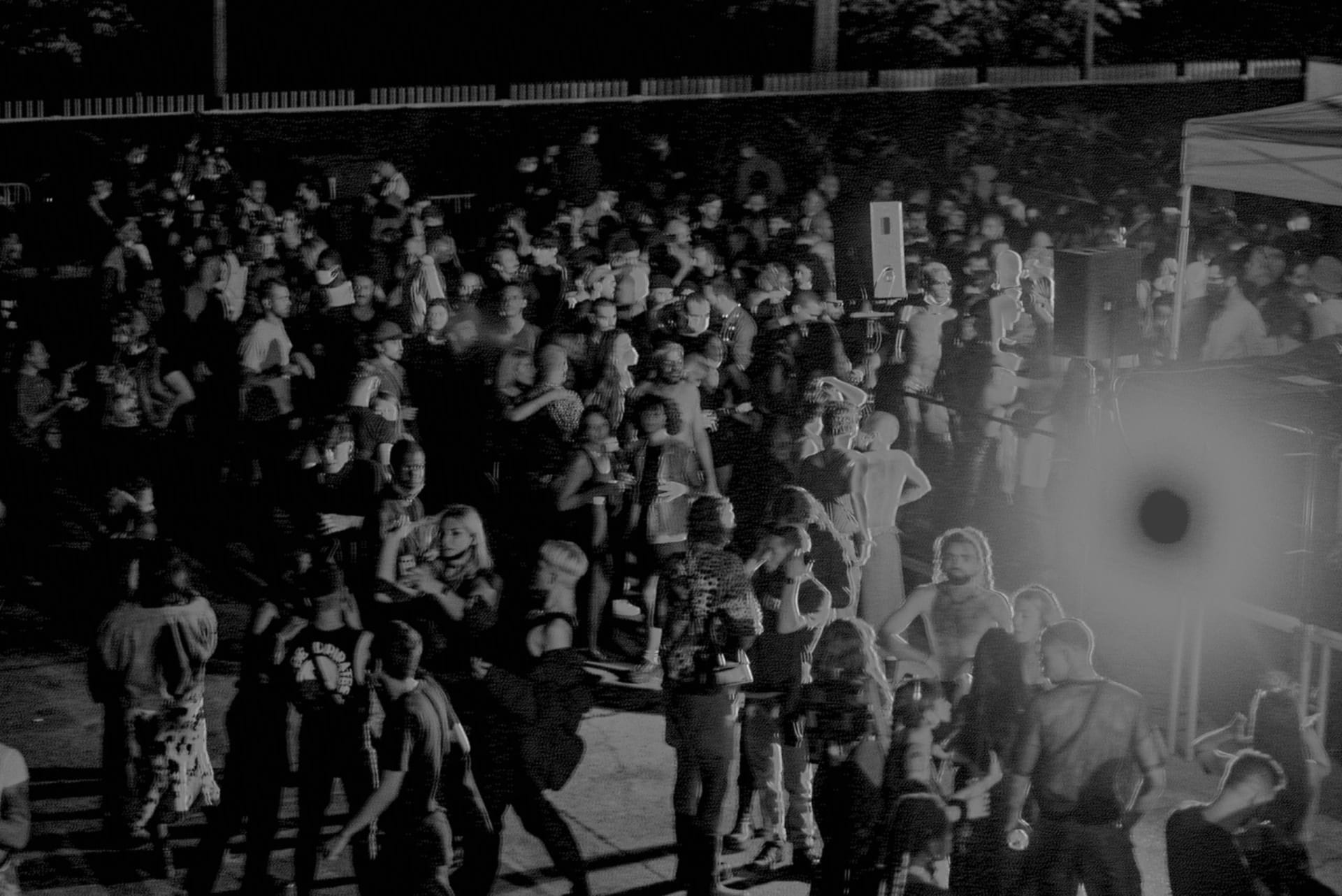

A Disastrous Rave in a Refugee Squat Sends Shockwaves Through Paris
Left to clean up the mess, refugees now face eviction
As the video of a young refugee girl lost in the middle of a queer rave went viral over the past weekend, Paris’ dance music community discovered its dark underbelly.
“I’ve never seen such a mess in my entire life,” says Adel*, hired by the Parisian queer collective La Toilette, for what was supposed to be a memorable anniversary for the crew. “When we arrived, something didn’t feel right: you could see children running around, people living in substandard housing… The promoters arrived hours after everyone, and didn’t seem to care at all. Punters paid €26 to attend a party where people were living in great misery…”
This unauthorised event in the car park of a squat where 225 refugees, including many children, were sheltered, got shut down by the police only two hours after its beginning. Endangering the already fragile condition of the residents, reports of the event soon sparked outrage, raising debates about the integrity of the local scene.
A DJ named Nymed, who was booked that night, were amongst the first voices to express their disgust the following day in a scathing post titled “Dear queer people”: “It turned out that they chose a refugee camp to set up their event. (…) Being myself an immigrant, I cannot tolerate investing and even spoiling such precarious places intended for people who cross the world to survive.” Outrage ensued in the local community, questioning the collective’s commitment to the values of inclusion and social awareness their queer project claimed to represent.
The worst party ever
The event ended with a squad of police bursting into the refugees’ safe space, as recalls Paul*, one of the ravers present that night: “After the cops kicked us out, they started to confront migrants. I witnessed a fight and heard a howl of great distress. One of the refugees was screaming to the police: “You are letting us down! Are you trying to kill us?” That’s when I realised the extent of what just happened, and thought : ‘What did we do?’ All the people who stayed and tried to have fun there were partly responsible.”
Pressured to make a statement, La Toilette finally took to its socials on Monday evening. But not for the public apology everyone expected: announcing that the party would be postponed to the next weekend, they issued a lengthy explanation detailing their circumstances. Caught between the struggle to find a location, and sidetracked by their wish for this party to be “the most important” in its history, the collective offers the rationale that the non-profit running the squat welcomed them, as the money offered–€6,000–would “help them a lot.”
As we spoke to them the next day, the promoters came back on their poor decision: “As the repression towards alternative culture grows in France, it’s more and more difficult to find locations for holding our parties. We were supposed to work with the same location throughout the whole summer, before a bigger collective proposed more money to its owner and robbed us from our space.”
“Every option was booked or way too far, so a guy named Oscar–who links collectives and locations–offered to introduce us to Romain, the president of United Migrants [the non-profit running the squat]. He told us we would be a relief, as the building’s condition was getting more and more catastrophic since COVID-19. We thought this could be a way to raise funds to profit the association, rather than enriching a landlord.”
We would have expected apologies at least.
United Migrants tells a different story. Three days after the event, Romain, member of the non-profit, is left to face the consequences: “La Toilette contacted us around 4PM to organise a party at midnight. They offered us a solidarity fund to help the building and their residents, and agreed to a number of 500 attendees maximum. Actually, I still think things could have happened safely, but they broke every promise. 1,500 people were there from 11PM, the music started around 1:30AM, the police came at 2AM and the organisers showed up around 3AM. They weren’t even there the whole time.” Considering the disaster, he deplores La Toilette’s reaction: “We would have expected apologies at least.”
Manel, member of Les Eveillés, another collective dedicated to raising funds for refugees through music events, is on site to help with the situation. “Hiding behind the financial argument is unfair,” she explains. “The building is in a very precarious state: bathrooms and toilets need to be renovated, food stocks are empty… It is basic common sense to understand that a structure in such dire need couldn’t refuse money, and that they would accept, even though their party didn’t have its place in that kind of fragile space. La Toilette ran out of options and rushed into this alternative without caring about the consequences a thousand people, loud music […] could bring in with them. Not even mentioning the fact that they employed refugees illegally to work at the bar and clean up the whole thing…”
“Now, the building’s future is even more uncertain, she continues. We have been informed that a meeting would happen at the prefecture with the landlord, and that we may face expulsion, endangering 225 refugees in the weeks to come.”
In an official statement, United Migrants confirmed that La Toilette already paid them “a third of the money they promised,” and that they had committed to transfer the rest “very quickly.” Stating that they expected the “respect of sanitary measures,” that the site would be “closed to children,” and “the organisers would be present at their own party,” the non-profit also neglected to ensure the safety of the refugees living in its squat.
Since the disaster went viral, a debate opened on the core values of the dancefloor, and the state of the Parisian nightlife. Inès*, one of the failed party’s attendees, would have preferred to see a scene willing to reflect upon its failures and share the responsibility: “Now, everybody is blaming their neighbour, and what’s up? Who did anything to help the refugees? Nobody. We’ve had enough of the old white-saviourism, and people using our identities to fill their pockets. Everybody is trying to pull the cover to themselves, but this whole ecosystem is actually getting rotten. Revolting stuff is happening in most of these parties–may it be on site or behind closed doors–and we keep attending, because we depend on these spaces as queer communities. The real victims here are the residents of the building, so I hope people will use their refunds to invest in one of the non-profits actively helping refugees.”
Between drastic institutional gatekeeping and critical lack of space, promoting events, raves and club nights in France was never an easy task; the situation has visibly worsened with COVID-related restrictions. Paris had already lost its clubbing institution Concrete in July 2019, before COVID-19 pushed its few remaining clubs into silence. Combined with the repression of free-parties and warehouse raves, the shrinking offer and ever-growing demand for queer and underground techno events led to the expansion of a select circle of promoters, as well as a sharp increase of ticket prices—often reaching over €20 for events held far from public transport, with budget sound and lighting.
For the public and the local communities, it can result in a loss in production quality, and crucially in health and safety, as careless promoters take advantage of the market, promptly setting up large-scale events whilst putting people’s lives at risk–sometimes sadly resulting in deaths and sexual assaults, as our local sources confirmed. With this new ugly wound out for the world to see, the Parisian scene might want to up its standards.
Additional reporting by Marie Dapoigny.
*names have been changed.
Image: La Toilette, Paris, September 2020, by Themis Belkhadra
Published September 09, 2021. Words by Themis Belkhadra.






Follow @electronicbeats